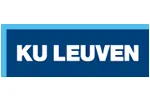We're moving! This site will be relocating to goingto.university in 2026. Please update your bookmarks to the new address.


| The award | How you will study | Study duration | Course start | Domestic course fees | International course fees |
|---|---|---|---|---|---|
| MSc | Full-time | 2 years | September | - | - |
The chemical sector is one of the most important economic sectors in Belgium. It provides approximately 90,000 direct jobs and more than 150,000 indirect. Your master's journey will equip you with a solid background in classical chemical engineering while covering also the environmental, safety and economic aspects.
What's the programme all about?
The Master of Chemical Engineering guarantees you a solid chemical engineering background while also opting for a contemporary view on product intensification, energy-efficient processing routes, product engineering and biochemical processes.
You will learn to think in a process-oriented way and be prepared to grasp the complexity of physicochemical systems. Furthermore, you will learn of processes at the nano and micro scale, which are increasingly fundamental for the development of new products and technologies.
Programme outline
The programme consists of a core curriculum, specialisation courses and general courses drawn from a pool of non-technical supporting skills.
The core curriculum builds on knowledge obtained at the bachelor’s level and covers the foundations of chemical engineering. You will concentrate on both the classical and the emerging new trends.
During the second year, the generic core is strengthened further. You opt for one of three specialisations: product, process or environmental engineering. The areas covered in the programme are designed to prime you for the major challenges within related industries.
In the final phase of the master’s programme you will undertake your master's thesis. You are assigned master’s thesis topics and select 5 preferred topics from a comprehensive list of relevant research areas.
Strengths
While the classic petrochemically based technologies and products still have their value, our master’s programme focuses more on the current trends of process intensification and the circular (biobased) economy.
The master’s programme values interactions with the chemical industry and some courses are taught by guest professors from within the industry. The department was the first to establish an Industrial Advisory Board, drawn from the expert commercial sphere.
At the Faculty of Engineering Science, students are given the opportunity to complete one or two semesters of their degree within the Erasmus+ programme at a European university, or a university outside Europe. The Chemical Engineering master programme has, e.g., a yearlong successful (dual degree) collaboration with Delaware University (US) and Ecole Polytechnique in Montréal (CA)
KU Leuven Online Open Day
Discover KU Leuven and its wide range of degree programmes at our Online Open Day! For more information, head to www.kuleuven.be/onlineopendays
Below are some suggested courses at other providers that you may also be interested in:
Bachelor Industrial Product Design Bachelor Degree
Howest University of Applied Sciences
Find out moreBachelor of Arts (Pathway to Teaching Early Childhood/Primary) Bachelor Degree
Western Sydney University
Find out moreTechnology, Media and Telecommunications Law Online PG Dip, PG Dip
Centre for Commercial Law Studies, Queen Mary University of London
Find out moreIf you do not meet the entry requirements for this course then consider one of these postgraduate preparation courses from another institution:
Graduate Diploma of Engineering (Civil: Structural)
Engineering Institute of Technology
Find out moreInternational Development (Environment, Sustainability and Politics) Graduate Diploma
University of Birmingham
Find out moreGraduate Diploma of Professional Engineering (Environmental Engineering)
University of Southern Queensland
Find out moreGraduate Diploma in Strategic Management Level 7
New Zealand Management Academies (NZMA)
Find out moreThere are 123 other courses listed from KU Leuven. A selection of these are displayed below:
Join the StudyLink email list and never miss a chance to turn your study abroad dreams into reality!
